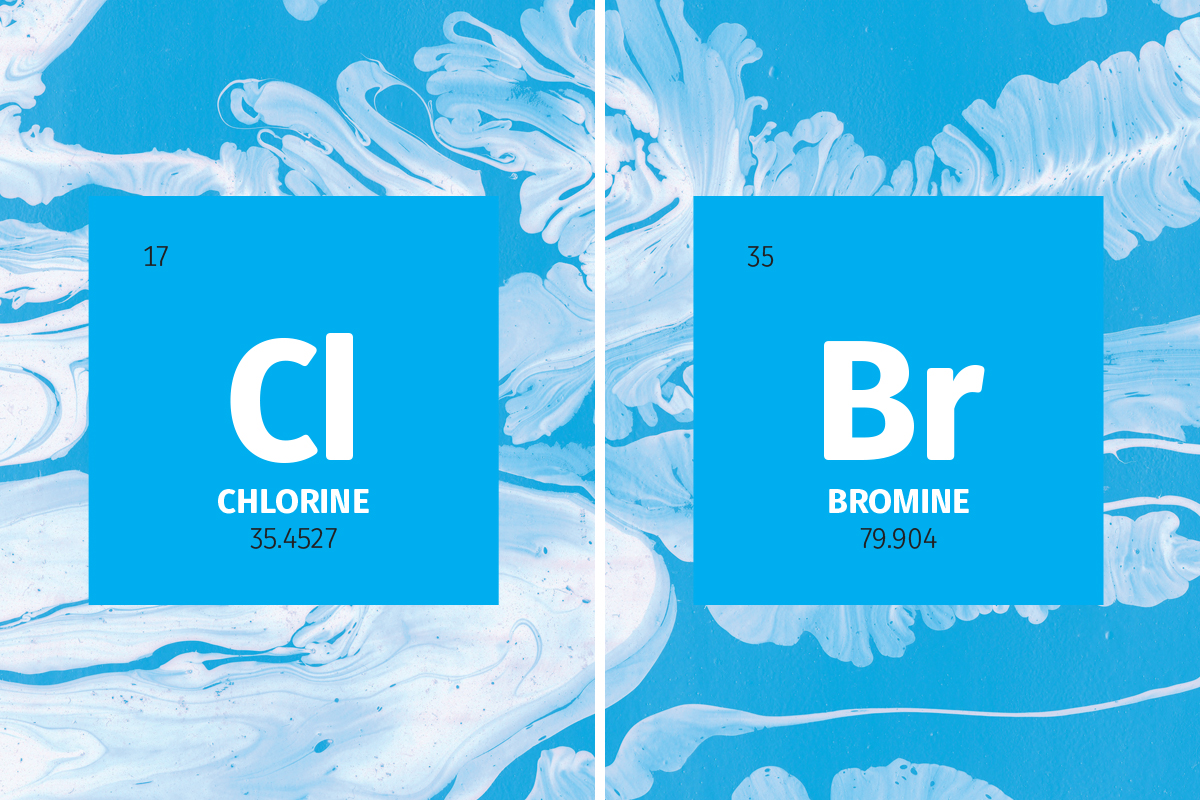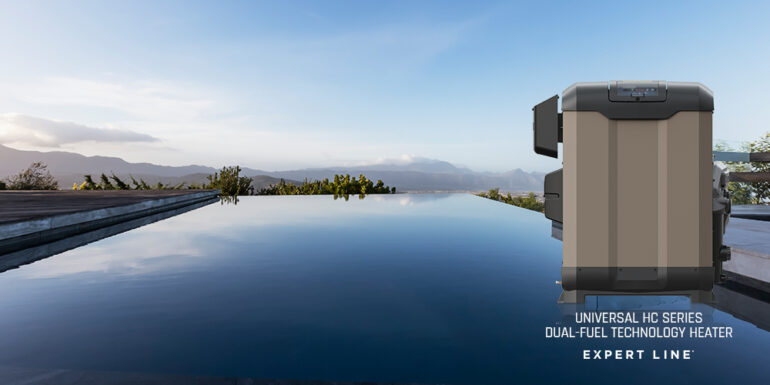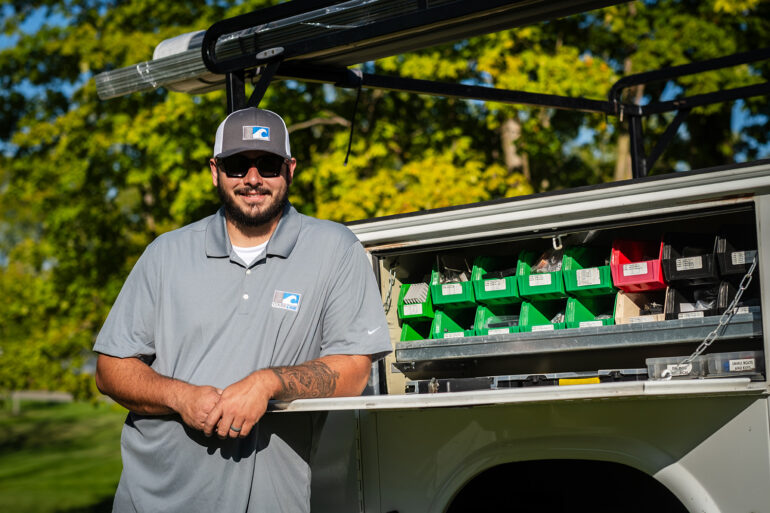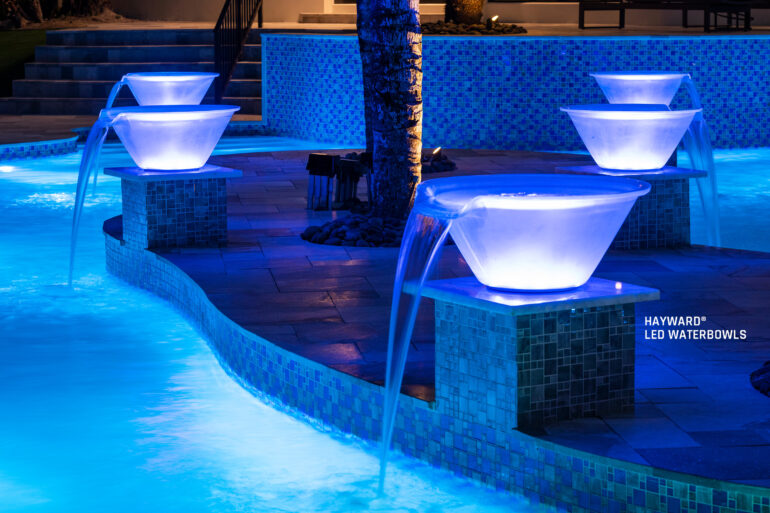Web Exclusive: Chlorine vs. Bromine

Paolo (Paul) Benedetti
CEO, Aquatic Technology Pool & Spa (Morgan Hill, California)
IPSSA Water Chemistry Certification, CPO Certified and Instructor, AST Certified and Instructor, CA – CSLB Industry Expert, Society of Watershape Designer – MASTER, Genesis Instructor
Chlorine
- Pros: Can be stabilized and protected from UV degradation, economical, easy to find
- Cons: Once chlorine combines with contaminates and forms chloramines, it ceases to be an active sanitizer
Bromine
- Pros: stable at higher temperatures, continues to be an active sanitizer once combines with contaminates and forms bromamines
- Cons: cannot be stabilized/protected from UV degradation, expensive, hard to find
“I like bromine because it provides a continued active sanitizer, but it’s not economical for an outdoor pool. However, a little bromine added to a chlorinated pool ads a brilliance to the water unattainable by any other means.”
Thomas Rosander
President/CEO, California Custom Hot Tubs (Sonoma)
Associates degree from Embry Riddle Aeronautical University and six years in Naval Aviation specializing in hydraulics, 15 years in the hot tub industry and four years in the pool industry
Chlorine
- Pros: pH neutral, gentle on equipment, works well with an ozone system, doesn’t smell if non-chlorine shock is used
- Cons: must manually apply each week, bad reputation because of high concentrations in public pools and inadequate shock techniques
Bromine
- Pros: slow dispensing, lasting two to three weeks
- Cons: very acidic, corrosive to pump seals and heaters, makes the plastic on hot tub jets brittle, makes the water milky when jets are activated, makes small bubbles that can be irritating to the lungs
“We always encourage folks to use Di-Chlor and non-chlorine shock weekly. It’s easy to administer and doesn’t smell when applied properly—no chemical soup to bathe in.”
Lance Fitzsimmons
Sales and Technical Support, ControlOMatic
Chlorine
- Pros: economical, better sanitizer, can be shielded from UV with cyanuric acid, easy to find
- Cons: typically too much cyanuric acid is used with it, tablets and Di-Chlor cause rapid buildup of cyanuric acid which greatly reduces effectiveness
Bromine
- Pros: more stable in heat
- Cons: costs more, additives in bromine will reduce effectiveness as they build up, slow dissolving, many don’t like the smell, negative effect on total alkalinity
“I prefer chlorine because I find it much more effective and economical. In hot tubs, bromine has been much more popular due to its stability in heat. Since the introduction of chlorine generators for hot tubs, chlorine is much more viable and effective in hot tubs.”
John Bokor
Regional Sales Manager, Haviland
Chlorine
- Pros: cyanuric acid helps protect it against the UV rays of the sun
- Cons: becomes hyperactive or slow working as the pH of the water changes
Bromine
- Pros: has a higher pH, less corrosive, less odor, much more stable in a wider range of pH than TriChlor leaving more room for consumer to make mistakes
- Cons: can get broken down quickly by UV rays (no stabilizer), availability issues, more expensive
“It depends on the application. In an outdoor residential application, I prefer a Tri-Chlor style chlorine [tablet]. If an indoor pool or indoor/outdoor spa, bromine is my choice because, at the end of the day, the objective is to make sure that the people using the vessel are safe. Both have a place in the industry and sometimes one method is preferred over the other.”
Raven Hollingsworth
Warehouse and Inventory Manager, Lake Air Pool Supply
15 years in the pool industry, CPO certified, BioGuard trained
Chlorine
- Pros: cheaper, easier to find
- Cons: lock ups and demand can make a customer second guess everything they know and make for a frustrating pool experience
Bromine
- Pros: easier to control in hot water (spas and indoor pools), less odor, easier on the body
- Cons: more expensive and harder to find
“Our store has always leaned more toward chlorine. With its availability and ease of use, it has been a staple of LAPS care. We even use it in our hot tubs!”
Tom Landi
President/Owner, Landi Pools and Games (New Jersey)
22 years in the pool industry, certifications from several chemical companies
Chlorine
- Pros: “I really don’t have many positives for chlorine.”
- Cons: shocking the pool more often, use cyanuric acid to stabilize which isn’t healthy for the swimmer in the long run, customers tend not to balance chlorinated water properly, requires more time to maintain
Bromine
- Pros: shocking necessity is limited, can use a non-chlorine shock and less supplemental chemicals, safer, good with hot water, doesn’t dissipate as quickly
- Cons: cost and availability
“I’ve been recommending bromine to my customers for all 22 years that I’ve been in business. I can’t say enough on the positive side of bromine.”
Theodora Sergiou
Vice President/COO, Nicholas Pools (Toms River, New Jersey)
Honorary Pool Chemistry Degree from N. Jonas & Co., testing pool water and recommending chemicals for over 30 years, CPO certification
Chlorine
- Pros: better for swimming pools, does not cause the pH of the water to fluctuate, can be used to shock water, more economical
- Cons: hot tubs require higher concentration of chlorine, has an odor that will not dissipate in a covered spa
Bromine
- Pros: better to sanitize a spa because it lasts longer in hot water, no smell
- Cons: cannot be used to shock, can greatly affect the pH of the water
“Bromine is better to sanitize a spa. Chlorine is better for swimming pools.”






